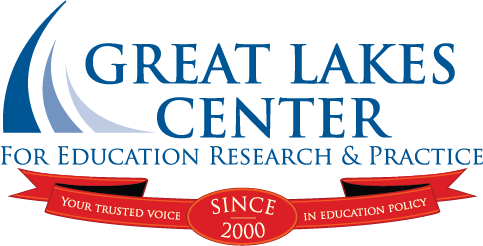
Think Twice Weekly Report
MARCH 16, 2024 - MARCH 22, 2024
The Think Twice Weekly Report compiles public education-related policy reports, research and articles of interest to policymakers, educators and stakeholders. This list is not exhaustive but is meant to highlight recent reports that may be used to support or undermine the work of our subscribers in supporting public schools. We encourage you to take a moment to scan these reports and determine if they may be used by policy makers to assist or erode your mission.
 Policy Reports
Policy Reports
Charter Schools
Source: Fordham Institute
Date: 3/20/2024
Do Authorizer Evaluations Predict the Success of New Charter Schools?
"As the sector's gatekeepers, charter school authorizers are responsible for ensuring that schools in their purview set students up for success. But can authorizers predict which schools will meet that standard?
To find out, University of Southern California assistant professor Adam Kho, and his coauthors, Shelby Leigh Smith (USC) and Douglas Lee Lauen (UNC), examine the extent to which authorizers' evaluations of charter school applications predict the initial success of the schools that are given the green light.
Overall, the results suggest that authorizers can distinguish between stronger and weaker applicants–even if they don't have a crystal ball."
Early Childhood Education
Source: AEI
Date: 3/21/2024
Three Principles for Conservative Early-Childhood Policy
"Key Points
Early-childhood education policy should provide relief for working families by subsidizing and stabilizing lower-cost early-childhood education options.
It should also keep children connected to their families, even though early-childhood education often provides care while parents are absent.
Early-childhood education policy should work with civil society and employers to maintain a nurturing, supportive array of early learning environments."
Teacher Education, Quality, and Professional Development
Source: NCTQ
Date: 3/22/2024
Clinical Practice Framework Research Rationale
This literature review, aligned to NCTQ's Clinical Practice Framework, explores various components of clinical practice and how they affect a range of outcomes, including aspiring teachers' feelings of preparedness, their entry into teaching, their retention in the classroom, and perhaps most importantly, their effectiveness once they are running a classroom of their own. This review primarily relies on published, peer-reviewed research and working papers, but includes some work by prominent organizations and task forces in the field to supplement areas where research is scarce and to provide more insight into the views of the field.
 Reports Reviewed
Reports Reviewed
GLC seeks to ensure that policy briefs impacting education reform are based on sound, credible academic research. Below are reviews conducted with GLC support.
K-12 School Choice Calculator
Source: Reason Foundation and EdChoice
Reviewed by: Bruce Baker, University of Miami
Bruce Baker, professor and chair of the Department of Teaching and Learning at the University of Miami, describes these factors in his review of the K-12 School Choice Calculator, which is provided online by the Reason Foundation and EdChoice's Fiscal Research and Education Center. Baker explains that there is one overarching problem that state policymakers have long faced in trying to make sense of competing claims about the fiscal bottom line for vouchers: How are they to estimate which percentage of voucher users will be students leaving public versus staying in private schools? The new calculator does not, and cannot, answer that question.
 What We're Reading
What We're Reading
Research and articles that we want to highlight for subscribers as potential resources:
The Community Schools Model
By: Jeff Bryant, WIKI Observatory
Community schools look different from state to state, and even different from school to school, but at the heart of the model is an emphasis on meeting the multiple needs of not only students but also the community that surrounds the school. The basic idea is that schools should serve as hubs in the community and partner with local organizations that serve the many needs of families and students. Schools are the delivery source because that's where children and families are. Also, the school's curriculum should reflect the local culture and interests of the community, and the governance should be shared among the various stakeholders that the school actually serves.
How Americans really feel about the teaching of controversial topics in schools
By: Nina Raffio, USC Today
While Americans overwhelmingly agree on the fundamental value of public education, a new study by researchers at USC reveals deep partisan divides on sensitive topics like LGBTQ+ inclusion and racial justice in K-12 curricula.
Tennessee lawmakers are increasingly ready to ditch the Achievement School District. What's next?
By: Marta W. Aldrich and Laura Testino, Chalkbeat
After a decade of painful takeovers of neighborhood schools, contentious handoffs to charter networks, and mostly abysmal student performance, Tennessee's Achievement School District appears to be on its way out. Several of the GOP-controlled legislature's top Republicans are acknowledging that the state's most ambitious and aggressive school turnaround model has failed - and should be replaced eventually with a more effective approach.
Students lose out as cities and states give billions in property tax breaks to businesses − draining school budgets and especially hurting the poorest students
By: Christine Wen, Danielle McLean, Kevin Welner, and Nathan Jensen, The Conversation
An estimated 95% of U.S. cities provide economic development tax incentives to woo corporate investors. The upshot is that billions have been diverted from large urban school districts and from a growing number of small suburban and rural districts.
